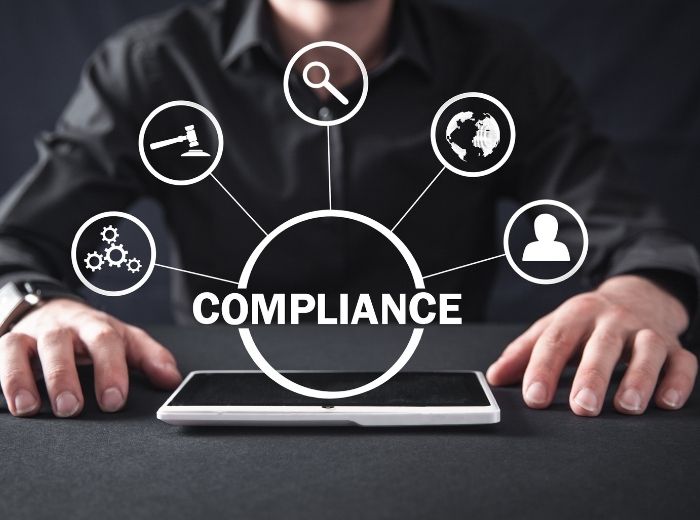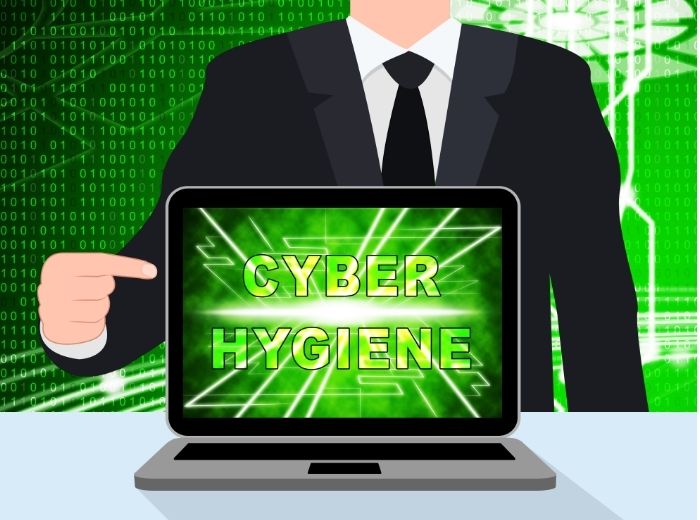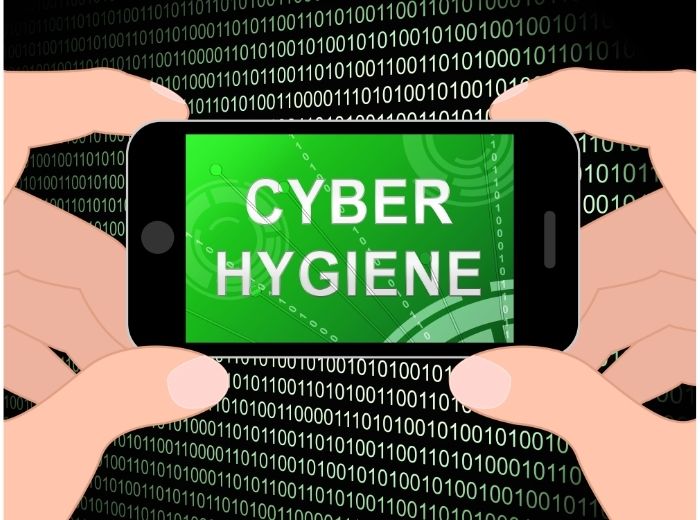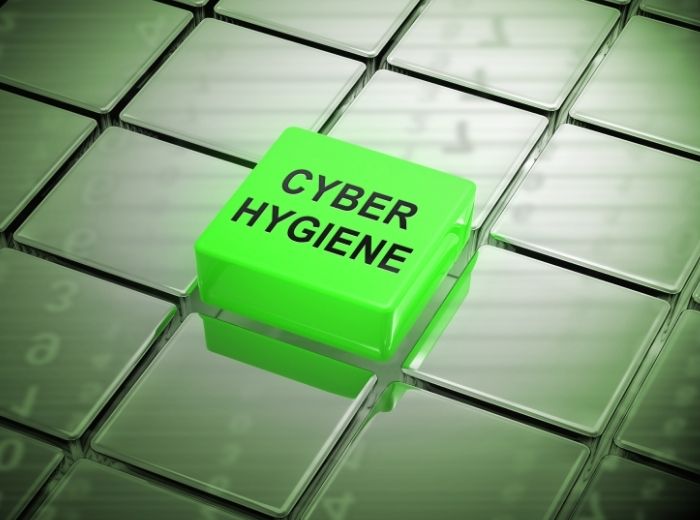
CMMC Compliance – The Cybersecurity Maturity Model Standard
The Cybersecurity Maturity Model Certification (CMMC) is a cybersecurity framework developed by the United States Department of Defense (DoD) to enhance and standardize cybersecurity practices among contractors and subcontractors working with the DoD. CMMC was created to address the increasing number of cybersecurity threats and breaches targeting the defense industrial base (DIB) and to ensure that sensitive defense information (CDI) is adequately protected.
Here are some key points about CMMC compliance
-
Multi-Level Framework
CMMC consists of five maturity levels, ranging from Level 1 (Basic Cyber Hygiene) to Level 5 (Advanced/Proactive). Each level builds upon the previous one, with Level 5 being the most stringent. Organizations are assessed and certified at one of these levels based on their cybersecurity practices and the nature of their work with the DoD.
-
Control Domains
CMMC incorporates a set of control domains based on existing cybersecurity standards and practices, including NIST Special Publication 800-171, NIST Cybersecurity Framework, and ISO 27001. These control domains cover various aspects of cybersecurity, such as access control, incident response, and system maintenance.
-
Assessment and Certification
To achieve CMMC compliance, organizations must undergo a third-party assessment by a CMMC Third-Party Assessment Organization (C3PAO). The assessment evaluates an organization’s adherence to the controls within their designated maturity level. Once an organization passes the assessment, they receive a CMMC certification.
-
Supply Chain Impact
CMMC extends its requirements to the entire supply chain working with the DoD. This means that prime contractors, subcontractors, and suppliers must all meet the necessary CMMC requirements to participate in DoD contracts.
-
Protecting Controlled Unclassified Information (CUI)
One of the primary objectives of CMMC is to protect Controlled Unclassified Information (CUI). Organizations handling CUI must adhere to specific CMMC levels based on the sensitivity of the information they handle.
-
Phased Implementation
CMMC has been implemented in phases, and it gradually became a requirement in DoD contracts. The phased approach aimed to give organizations time to prepare and adjust their cybersecurity practices to meet the required maturity levels.
-
Continuous Improvement
CMMC promotes a culture of continuous improvement in cybersecurity practices. Organizations are expected to continually assess and enhance their security measures to adapt to evolving threats.
CMMC compliance is a significant undertaking for organizations in the defense industrial base, as it requires a commitment to improving and maintaining cybersecurity practices. Achieving and maintaining CMMC certification can enhance an organization’s competitiveness in bidding for DoD contracts and help protect sensitive information from cyber threats.
It’s important to note that the information provided here is based on my knowledge as of September 2021, and there may have been updates or changes to the CMMC framework since then. Organizations seeking CMMC compliance should refer to the official CMMC website and consult with qualified professionals for the most up-to-date guidance and requirements.
CMMC Compliance Services
CMMC compliance can be a complex and challenging process, and many organizations turn to CMMC compliance services to help them navigate the requirements, prepare for assessments, and achieve certification. These services are typically offered by cybersecurity firms, consulting companies, and experts with expertise in CMMC and cybersecurity. Here are some of the services that CMMC compliance service providers may offer:
-
Gap Assessment
A gap assessment involves an evaluation of an organization’s current cybersecurity practices and their alignment with CMMC requirements. Service providers identify areas where the organization falls short of compliance and provide recommendations for improvement.
-
Policy and Procedure Development
Developing and updating cybersecurity policies and procedures to align with CMMC requirements is a critical step in compliance. Service providers can assist in creating and documenting policies, procedures, and guidelines that meet CMMC standards.
-
Security Controls Implementation
Implementing the specific security controls and practices required by CMMC can be a complex task. Compliance service providers can help organizations deploy and configure the necessary security technologies and tools.
-
Training and Awareness
Service providers often offer training programs to educate employees about cybersecurity best practices and CMMC requirements. Employee awareness and training are essential components of CMMC compliance.
-
Documentation and Recordkeeping
Maintaining accurate and up-to-date documentation is crucial for compliance. Service providers can assist in creating and organizing the necessary documentation to demonstrate compliance during assessments.
-
Security Risk Assessment
Conducting a thorough risk assessment is a fundamental aspect of CMMC compliance. Service providers can help organizations identify and assess cybersecurity risks and develop risk mitigation strategies.
-
Pre-Assessment Readiness Review
Before undergoing a formal CMMC assessment, organizations can benefit from a readiness review conducted by compliance service providers. This review helps ensure that all necessary preparations have been made.
-
Assistance with CMMC Assessment
Service providers can guide organizations through the CMMC assessment process, helping them prepare for the assessment and address any issues or findings that may arise during the assessment.
-
Remediation Services
If an organization receives a less-than-desirable assessment result, compliance service providers can assist in remediating any deficiencies and implementing corrective actions.
-
Continuous Monitoring and Improvement
Achieving CMMC compliance is not a one-time effort; it requires ongoing monitoring and improvement. Service providers can help organizations establish processes for continuous monitoring and enhancement of cybersecurity practices.
-
CMMC Level Selection
Choosing the appropriate CMMC maturity level for an organization’s specific needs and contractual requirements is a critical decision. Compliance service providers can provide guidance on level selection.
-
Supply Chain Assessment
Organizations in the defense supply chain may need to assess the cybersecurity posture of their subcontractors and suppliers. Compliance service providers can assist in evaluating and managing supply chain compliance.
It’s important for organizations to carefully select a CMMC compliance service provider that has experience and expertise in the specific CMMC requirements relevant to their industry and contractual obligations. Additionally, service providers should be up-to-date with the latest developments and changes in the CMMC framework.
When engaging a compliance service provider, organizations should conduct due diligence, review references, and ensure that the provider can meet their unique compliance needs. Achieving and maintaining CMMC compliance is an ongoing commitment to cybersecurity, and working with knowledgeable professionals can streamline the process and improve an organization’s security posture.
Who Does CMMC Compliance Affect
CMMC (Cybersecurity Maturity Model Certification) compliance affects a wide range of organizations, particularly those in the United States defense industrial base (DIB) that work with the Department of Defense (DoD). Here are the key groups and entities that CMMC compliance affects:
- Defense Contractors and Subcontractors: CMMC compliance primarily impacts defense contractors and subcontractors, including companies that provide goods and services to the DoD. This includes manufacturers, service providers, research organizations, and other entities that have contracts or subcontracts with the DoD.
- Prime Contractors: Prime contractors are organizations that directly engage with the DoD and are responsible for managing contracts. They have a significant role in ensuring that their subcontractors and suppliers also meet CMMC compliance requirements.
- Subcontractors and Suppliers: Organizations that subcontract with or supply goods and services to prime contractors on DoD contracts are subject to CMMC compliance requirements. Compliance expectations may vary depending on their role and the nature of the information they handle.
- Research Institutions: Universities, research institutions, and organizations involved in research and development (R&D) projects funded by the DoD may also be subject to CMMC compliance if they handle sensitive DoD information.
- Non-Profit Organizations: Non-profit organizations that engage with the DoD and handle controlled unclassified information (CUI) or other sensitive data are also subject to CMMC compliance requirements.
- IT Service Providers: Managed service providers, IT consultants, and other technology service providers that support defense contractors may be required to demonstrate CMMC compliance, particularly if they have access to or manage DoD data.
- Supply Chain Entities: The CMMC framework places an emphasis on supply chain security. Any organization that is part of the DoD supply chain, including suppliers, vendors, and subcontractors at various tiers, must meet CMMC compliance requirements.
- Government Agencies and Auditors: CMMC compliance affects government agencies, including the DoD, responsible for conducting assessments and overseeing compliance efforts. Certified third-party assessment organizations (C3PAOs) and auditors play a critical role in evaluating organizations’ compliance with CMMC.
- Certification Bodies: Organizations seeking CMMC certification must work with accredited certification bodies to undergo assessments and obtain their certification. Certification bodies play a key role in the formal certification process.
- DoD Contracts and Solicitations: CMMC compliance requirements are included in DoD contracts and solicitations. Organizations bidding for or awarded DoD contracts are required to meet the specified CMMC level associated with the contract.
- Legal and Compliance Departments: Organizations often need to involve their legal and compliance departments in the CMMC compliance process to ensure that contracts and agreements align with CMMC requirements.
- Employees and Personnel: Employees within organizations subject to CMMC compliance must be trained and educated about their responsibilities in maintaining cybersecurity and safeguarding sensitive information.
CMMC compliance is designed to enhance cybersecurity practices across the defense supply chain and protect sensitive information. It aims to establish a consistent and standardized approach to cybersecurity within the defense industrial base. Compliance requirements can vary depending on the organization’s role, the level of controlled unclassified information (CUI) they handle, and their contractual obligations with the DoD.
Implementation of CMMC Compliance
Implementing CMMC (Cybersecurity Maturity Model Certification) compliance is a systematic process that involves several steps. The exact approach may vary depending on the organization’s size, complexity, and current cybersecurity posture, but here is a general outline for implementing CMMC compliance:
Understand CMMC Requirements
Familiarize yourself with the CMMC framework, including its five maturity levels and the specific security controls associated with each level.
Determine which CMMC level is appropriate for your organization based on your contractual obligations with the Department of Defense (DoD) and the sensitivity of the data you handle.
Conduct a Gap Analysis
Evaluate your organization’s existing cybersecurity practices and policies against the CMMC requirements to identify gaps and areas that need improvement.
This gap analysis will serve as a starting point for your compliance efforts.
Establish a CMMC Compliance Team
Form a dedicated team responsible for managing the CMMC compliance process. This team should include individuals with expertise in cybersecurity, compliance, IT, and legal aspects.
Develop Policies and Procedures
Create or update cybersecurity policies, procedures, and guidelines that align with CMMC requirements. This includes policies related to access control, incident response, data protection, and more.
Ensure that these policies are communicated to and understood by all employees.
Implement Security Controls
Begin implementing the specific security controls required for your chosen CMMC level.
This may involve configuring IT systems, deploying security technologies, and establishing secure configurations.
Training and Awareness
Provide cybersecurity training and awareness programs for your employees to ensure that they understand their roles in maintaining compliance.
Training should cover topics such as phishing awareness, secure handling of data, and incident reporting.
Documentation and Recordkeeping
Maintain accurate and organized documentation of your cybersecurity practices. This includes documenting the implementation of security controls, incidents, training records, and policy updates.
Documentation is crucial for demonstrating compliance during assessments.
Third-Party Assessment
Engage a certified CMMC Third-Party Assessment Organization (C3PAO) to conduct a formal assessment of your organization’s compliance.
Work with the C3PAO to schedule and prepare for the assessment.
Assessment and Certification
Undergo the CMMC assessment, which involves a review of your cybersecurity practices and controls.
If your organization passes the assessment, you will receive a CMMC certification at the appropriate maturity level.
Remediation and Improvement
If any deficiencies or issues are identified during the assessment, develop and implement remediation plans to address them.
Continually monitor and improve your cybersecurity practices to stay compliant and adapt to evolving threats.
Maintain Compliance
Establish processes for continuous monitoring and ongoing compliance management to ensure that your organization remains compliant with CMMC requirements.
Stay updated on changes and updates to the CMMC framework.
Supply Chain Management
If your organization is part of the defense supply chain, assess the cybersecurity posture of your subcontractors and suppliers and ensure they also meet CMMC requirements.
Legal and Contractual Considerations
Review and update contracts and agreements with the DoD to ensure they align with CMMC compliance requirements.
Reporting and Documentation
Be prepared to provide evidence of compliance and maintain records of your CMMC certification for use in contract negotiations and renewals.
Employee Engagement
Continue to educate and engage employees in cybersecurity best practices and compliance efforts to maintain a strong cybersecurity culture within your organization.
Types of CMMC Compliance

Level 1: Basic Cyber Hygiene (CMMC Level 1)
CMMC Level 1 focuses on basic cybersecurity practices. It is intended for organizations that do not handle controlled unclassified information (CUI) but want to establish a foundational level of cybersecurity.
Level 1 includes 17 practices that are derived from Federal Acquisition Regulation (FAR) Clause 52.204-21 and are aimed at basic cyber hygiene, such as antivirus software and strong password requirements.

Level 2: Intermediate Cyber Hygiene (CMMC Level 2)
CMMC Level 2 builds upon the foundational practices of Level 1 and is appropriate for organizations that handle FCI (Federal Contract Information).
Level 2 includes a total of 72 practices that encompass not only basic cyber hygiene but also more intermediate cybersecurity measures, such as user training and data encryption.

Level 3: Good Cyber Hygiene (CMMC Level 3)
CMMC Level 3 is designed for organizations that handle controlled unclassified information (CUI) and is often a requirement for defense contractors and subcontractors.
Level 3 includes 130 practices and represents a higher level of cybersecurity maturity. It encompasses both basic and intermediate practices and adds more advanced security measures, such as incident response planning and multifactor authentication.

Level 4: Proactive (CMMC Level 4)
CMMC Level 4 focuses on proactive cybersecurity practices and is suitable for organizations with an elevated risk profile.
Level 4 includes 156 practices and emphasizes the proactive detection and response to cybersecurity threats. It includes advanced measures like continuous monitoring of security controls and enhanced threat hunting capabilities.

Level 5: Advanced/Proactive (CMMC Level 5)
CMMC Level 5 represents the highest level of cybersecurity maturity and is intended for organizations that require the most stringent security measures to protect highly sensitive information.
Level 5 includes 171 practices and emphasizes advanced cybersecurity practices, including the optimization of security processes, innovative technologies, and a highly proactive approach to threat detection and response.
Organizations working with the DoD need to assess their contractual obligations and the sensitivity of the information they handle to determine which CMMC level they need to achieve. The goal of these different compliance levels is to provide a tailored approach to cybersecurity, ensuring that organizations meet the appropriate level of security based on their specific circumstances. Compliance is assessed by third-party assessors, and certification is awarded at the appropriate CMMC level.
CMMC Compliance as a service For USA Businesses
CMMC compliance as a service is a specialized offering provided by cybersecurity firms, consulting companies, and experts to assist United States businesses in achieving and maintaining compliance with the Cybersecurity Maturity Model Certification (CMMC) framework. This service is particularly relevant for businesses in the defense industrial base (DIB) that work with the Department of Defense (DoD) and are required to meet CMMC standards. Here’s how CMMC compliance as a service can benefit U.S. businesses:
-
Expertise and Guidance
CMMC compliance service providers have expertise in the CMMC framework, its requirements, and cybersecurity best practices. They can guide businesses through the complex compliance process.
-
Customized Compliance Roadmap
Providers assess a business’s current cybersecurity posture, identify gaps, and create a tailored compliance roadmap. This roadmap outlines the steps and tasks required to achieve and maintain compliance.
-
Policy and Procedure Development
Compliance service providers assist in developing and updating cybersecurity policies and procedures that align with CMMC requirements. They ensure that documentation is comprehensive and in line with best practices.
-
Security Control Implementation
Providers help businesses implement the specific security controls required for their chosen CMMC level. This includes configuring IT systems, deploying security technologies, and establishing secure configurations.
-
Employee Training
Compliance services often include employee training programs to raise awareness of cybersecurity best practices and CMMC requirements. Well-informed employees play a crucial role in maintaining compliance.
-
Documentation and Recordkeeping
Providers help businesses maintain organized documentation of their cybersecurity practices and compliance efforts, which is essential for demonstrating compliance during assessments.
-
Preparation for Assessments
Compliance service providers assist businesses in preparing for CMMC assessments. They conduct pre-assessment readiness reviews to ensure that all necessary preparations have been made.
-
Assessment Support
During the CMMC assessment, providers may be on hand to address questions and concerns, ensuring a smooth assessment process.
-
Remediation Services
If deficiencies or issues are identified during assessments, providers help businesses develop and implement remediation plans to address them.
-
Continuous Monitoring and Improvement
Providers help businesses establish processes for continuous monitoring and improvement of their cybersecurity practices. This ensures ongoing compliance and adaptation to evolving threats.
-
Supply Chain Assessment
If a business is part of the defense supply chain, compliance service providers can assess the cybersecurity posture of subcontractors and suppliers to ensure supply chain compliance.
-
Contractual Alignment
Providers can help review and update contracts and agreements with the DoD to ensure they align with CMMC compliance requirements.
-
Certification Support
Compliance service providers work with accredited certification bodies to facilitate the formal CMMC certification process, helping businesses achieve certification.
-
Legal and Compliance Considerations
They can assist businesses in addressing legal and compliance considerations related to CMMC compliance, ensuring that all contractual obligations are met.
-
Cybersecurity Culture
Compliance service providers help instill a strong cybersecurity culture within the organization, emphasizing the importance of security at all levels.
Businesses seeking CMMC compliance as a service should choose a provider with experience in their industry, a deep understanding of CMMC requirements, and a proven track record in helping organizations achieve and maintain compliance. Compliance service providers can simplify the process and enhance an organization’s cybersecurity posture, ultimately ensuring they meet the DoD’s cybersecurity standards and contractual obligations.






